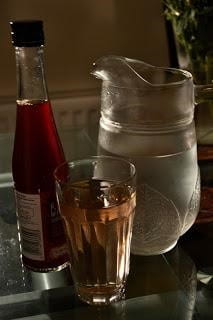Culina Quarantina: A Series of Roman Recipes
By Alicia Lopez
Recently, I’ve been doing a lot of cooking and baking to help pass the time in quarantine, so I decided to look into what cooking would have been like in Ancient Rome. Here are some of my favorite ancient recipes to help get you through quarantine. Bonam fortunam! You can find previous recipes here.
Garum, Liquamen, and Caroenum
From Martial’s Epigramata Book XIII
CII. Garum sociorum.
Exspirantis adhuc scombri de sanguine primo
accipe fastosum, munera cara, garum.
 Garum is everyone’s favorite ancient condiment. It was made from fermented blood and innards of fish (according to Martial Spanish mackerel). Pliny the Elder described Garum as “that exquisite liquor” in his Natural History (31.43). Additionally there are many types of Garum of various qualities and values. Garum sociorum, for example, was high-class garum from Carthago Nova. This garum sold for 1000 sestertii (a legionary’s annual wage) per 2 congius (about 3 liters)!
Garum is everyone’s favorite ancient condiment. It was made from fermented blood and innards of fish (according to Martial Spanish mackerel). Pliny the Elder described Garum as “that exquisite liquor” in his Natural History (31.43). Additionally there are many types of Garum of various qualities and values. Garum sociorum, for example, was high-class garum from Carthago Nova. This garum sold for 1000 sestertii (a legionary’s annual wage) per 2 congius (about 3 liters)!
Liquamen is a different, lesser known ancient sauce. This was created by fermenting the entire fish (not just the blood and innards). This is very similar to the process of creating many modern fish sauces. You’d be surprised to find in Roman cooking liquamen shows up more frequently than garum. We will be making our own approximation of liquamen using fish sauce and caroenum in a 1:3 ratio.
Caroenum is barely mentioned in ancient texts. It was a grape syrup used to add ‘bulk’ to a meal. To make it we will reduce grape juice. According to Grainger and Dalby caronem was reduced by 1/3 to ½. Caroenum is also used to make oenogarum which was made by mixing fish sauce, oil, wine, and spices
Sources: http://pass-the-garum.blogspot.com/2013/03/garum.html
Posca
All the sources say is that soldiers drank a mixture of vinegar and water, so here it is…
Ingredients:
- 2 tbsp Red Wine Vinegar
- 250ml Water
Recipe:
- Mix and drink!
N.B. Some historians say that perhaps honey was also added. Si tibi placet add 1 tbsp of honey.
Source: http://pass-the-garum.blogspot.com/2013/09/posca.html
Alicia Lopez (College ’23) is a student at the University of Pennsylvania studying Classical Studies and English.
